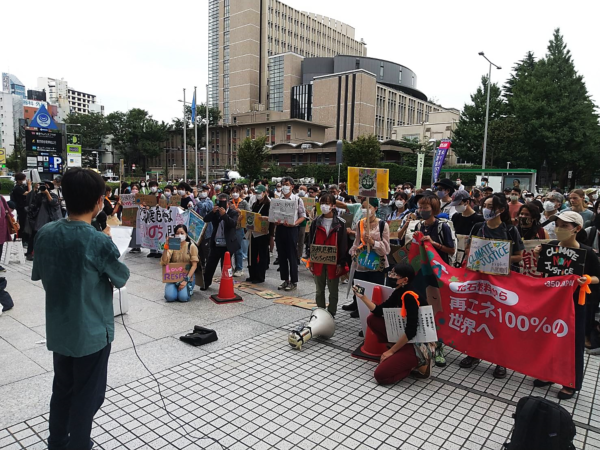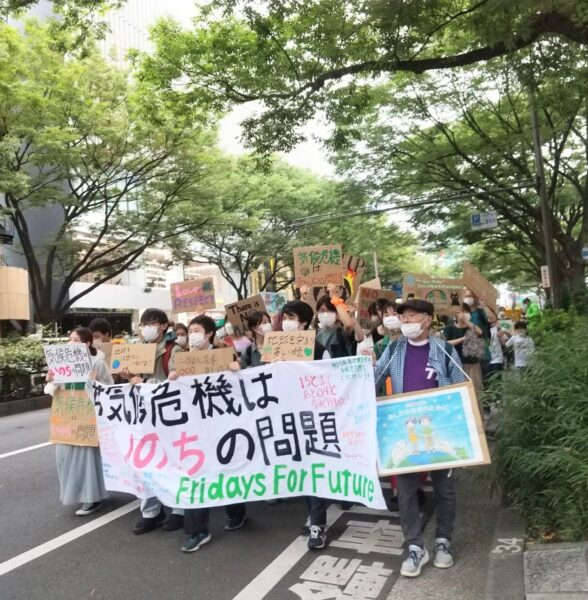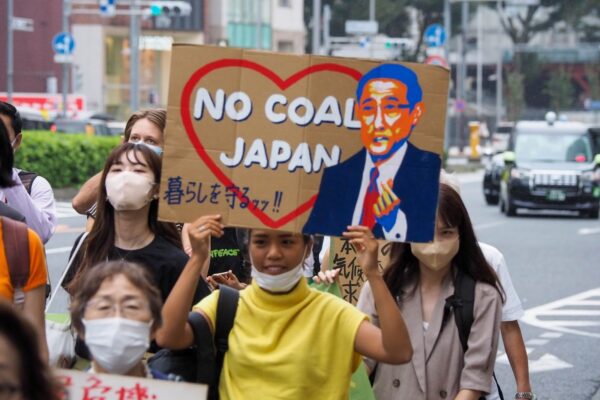On September 23, Fridays For Future Japan (FFF Japan) and Japanese youth organized climate actions such as marches and standing demonstrations in 34 locations throughout Japan, with support and participation from over 150 organizations.
▶Information on these can be found on FFF Japan’s website here.
Fridays For Future is a global youth movement that began with a sit-in by Swedish environmental activist Greta Thunberg in front of the Swedish parliament to demand climate change action. It has now spread to countries all over the world.
Fridays For Future used to hold its Global Climate March every few months at the same time around the world, but activities were significantly restricted due to the COVID-19 pandemic, and so in Japan, Fridays For Future groups in various regions instead planned their own activities as “Global Climate Actions”. Nevertheless, on March 25th, 2022 of this year, the whole country took action simultaneously under a slogan and hashtag translating to “The climate crisis: No fear if we all move together”.
“The Climate Crisis is a Matter of Life”
The energy situation in Japan has changed dramatically in the past six months, including the energy crisis triggered by Russia’s invasion of Ukraine, Prime Minister Kishida’s comments on restarting and building new nuclear power plants, and Japan’s GX (Green Transformation) Strategy, which includes measures to extend the life of thermal power plants. Additionally, there is no indication that Japan’s government will update its current 2030 greenhouse gas reduction target of 46%, despite the call at COP26 last year for governments to strengthen and resubmit their 2030 nationally determined contributions (NDC) as a measure to address this “critical decade.”
On the other hand, the effects of climate change are becoming more and more visible all over the world: in Japan this summer, typhoons, torrential rains, and high temperatures have caused significant damage, while overseas, enormous impacts have been felt from climate disasters such as flooding in Pakistan, heat waves and droughts in Europe, and wildfires in the United States.
Under such circumstances, this action used the slogan “The Climate Crisis is a Matter of Life”, to call for stronger measures to combat climate change. Because the impact of the climate crisis is greater on low-income groups and other minorities in society, such as gender and racial minorities, this slogan was created with the aim of engaging a wider audience that is interested in issues other than the climate crisis.

Report: The climate march in Tokyo
In Tokyo, for the first time in about three years since the beginning of COVID-19 pandemic, about 400 people of all ages, genders and backgrounds participated in the climate march under light rain.
Taking place on a national holiday, many people were walking around Shibuya, which can be considered the center of Tokyo, enjoying shopping and dining. The march attracted a lot of attention and press coverage, and some even spontaneously joined the march as it was taking place, but there was still a feeling that awareness of the climate crisis and its urgency is not yet widespread in Japan.

Nevertheless, the march allowed many people who share a sense of urgency about the climate crisis to meet with each other and take action directly, and the event also attracted a great deal of public attention. Marches were also held in the cities of Yokohama and Kyoto, and other various events were held throughout Japan.
Youth in Japan and throughout the world are demanding that government, business, and other adults respond to the appeals of young people and further strengthen measures to address the climate crisis, and in response to these voices, adults must demonstrate their ability to listen.

